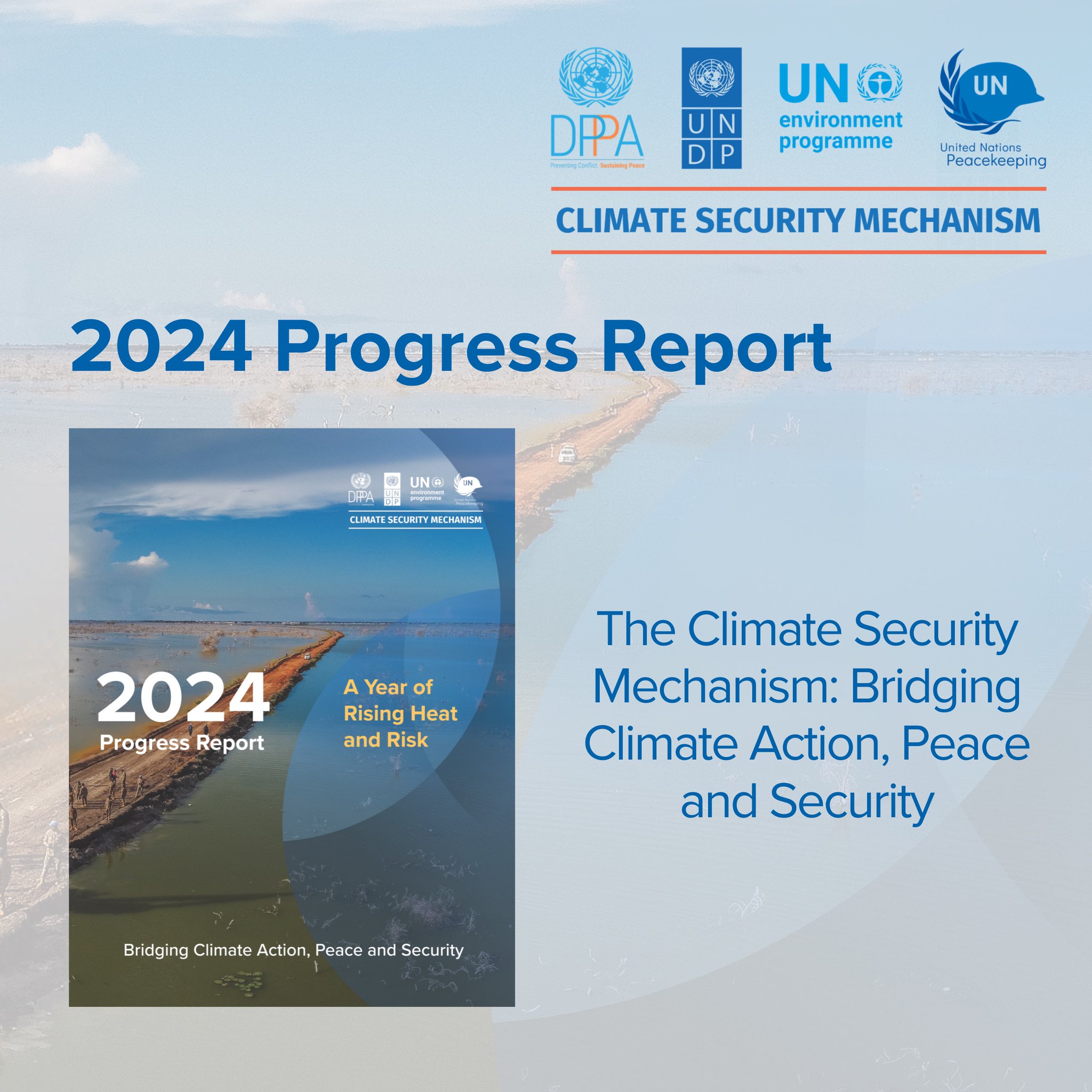By Environmental Reporter.
The Climate Security Mechanism. CSM, a United Nations collaboration aimed at spearheading conflict management resulting from climate change issues has boldly strategised towards implementation of its objectives as the need for climate change heightens owing to the temperature fluctuations.
The taskforce which was established in 2018 under colllaboration of multiple United Nations agencies emphasised the need to realise pease and security through climate change mitigation as communities are at risk of being fractured owing to the challenges brought about by climate change in their 2024 report.
According to the report, “(CSM) is a joint initiative by the UN Department of Political and Peacebuilding Affairs (DPPA), the UN Development Programme (UNDP), the UN Environment Programme (UNEP), and the UN Department of Peace Operations (DPO). It aims to strengthen the capacity of the UN and its partners to systematically analyze and address the linkages between climate change, peace and security.”
On the Other hand, “Of the 14 countries most at risk from the impacts of climate change,
13 had a humanitarian response plan in 2024 and all were already coping with conflict or fragility3. More broadly, the world has witnessed a 25% increase in political violence
incidents last year. When interacting with socio-economic and political factors, climate change can exacerbate conflict risks and drivers, thereby affecting human, national and
international peace and security. On the other hand, conflicts can hinder climate responses.” Antonio Gutteres, the UN Secretary General said in the report’s foreword message.
Furthermore, “It is increasingly clear that the severe and often irreversible impacts of climate change extend
beyond ecosystems and biodiversity, with adverse implications for communities and nations as well as potentially peace and security. Integrated approaches and strong partnerships are required to find sustainable, cross-cutting solutions.” The report also highlighted.
In a bid to redress these challenges, CSM had instituted an array of approaches aimed at generating knowledge, implementation, strategising on the security issue’s that may arise owing to climate change conflict.
“As of 2024, the CSM together with partners had co-developed and shared 29 knowledge products and tools on climate, peace and security – including 11 in 2024. This includes pieces connecting CPS to policy areas such as climate finance, mediation, women, peace and security(WPS), youth, peace and security (YPS) or ecosystem restoration.”
Moreover “The CSM also supports the strategic planning of UN Country Teams (UNCTs) and Resident Coordinator’s Offices (RCO), bringing a voice to CPS across mandate and thematic focus. Through these initiatives and beyond, the CSM has so far worked with more than
20 UNCTs, RCOs, Country Offices of UN entities and other partners in integrating CPS risks in analytical, planning and programming processes in Africa, Asia and the Pacific, Central Asia and Eastern Europe, and Latin America and Caribbean.”
Climate change has fractured communities as the need to align with the Paris Agreement and Emission targets are at loggerheads with communities and their demands for energy usage, agricultural practices especially in the under developed world.

